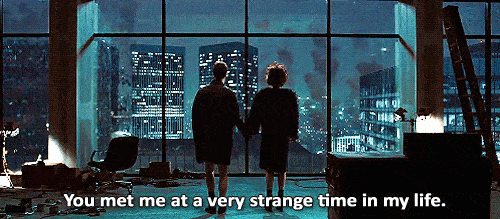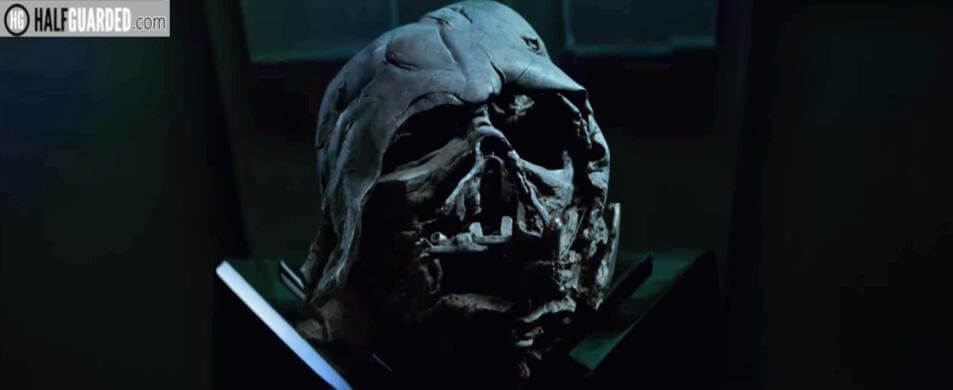@MichaelCoughlin
Warning: this is a Mr. Robot review. It contains a ton of spoilers. Please proceed.
I’m never comfortable writing something that isn’t unique. Espousing the same thing so many have already said bores me. Reviewing TV isn’t my speciality – though I guess it is now – but I’ve been bored of late. As such, I watched the entire season of Mr. Robot in two days. For the reasons that follow, I’m comfortable with none of what I write being new.
Mr. Robot is Fight Club. On an insulting level. That isn’t to say it isn’t good – it was enjoyable enough – but I cannot recall the last time I encountered something that was such a blatant rip-off. I suppose some reading this may not have seen one, or the other, or both, so I’ll start with the basics of Fight Club.
Fight Club is about a normal guy who is boring. Unbeknownst to himself, he develops a split personality. This alternate personality is more outgoing and decisive and slowly but surely puts into action a plan to blow up all of the credit card companies’ buildings, “resetting the world to zero.” He envisions this being the start of a new world, a world where no one is shackled by debt.
This is, almost word for the word, the exact plot of Mr. Robot. The main character, Elliot Anderson, is a normal guy, but a bit of an introvert, who works for a faceless corporation. He calls it Evil Corp and the producers are subtle enough to use the same E that once was affixed to Enron to drive home the point. He is a computer specialist. He gets wrapped up in a conspiracy to develop a computer virus that will take down Evil Corp. In the world of Mr. Robot, Evil Corp owns all of the debt and so this virus will erase all of that debt, letting everyone start over.

The titular character is an older man who wears a jacket that says Mr. Robot on it. As it turns out, he is the Elliot’s dead father, who our protagonist has imagined is real. It is Dead Dad that our everyman sees as the charismatic take charge architect of the entire plan, but in reality it’s just an extension of his own psyche.
At the end of Fight Club, we see all of the credit card buildings being destroyed. At the end of season one of Mr. Robot, the virus has worked, the debt is all gone, and a revolution is afoot.
Oh, and if all that isn’t bad enough, the main, final stages of the plan to destroy everything in Fight Club happen as the protagonist “loses time” fora few days. Quite literally the exact same thing happens in Mr. Robot as Elliot is “missing” for three days and doesn’t know what’s happened until it’s essentially too late for him to stop his own plan.
The creator of Mr. Robot has balls, I’ll give him that. And it was beyond apparent that they knew what was going on and that this could not have been a coincidence. As if to slap everyone in the face, the penultimate episode of Mr. Robot ends with a version of “Where Is My Mind” by the Pixies – the same exact song that plays during the end of Fight Club.
Fight Club even deals with themes involving the loss of a father figure and such that are also found throughout Mr. Robot. Heck, the members of Fight Club even think their leader, Tyler Durden, is a little off but still follow him. The same is true in Mr. Robot.
Fight Club creates its revolution with the name “Project Mayhem.” Mr. Robot uses “fsociety” which is as clever as a 14 year old would come up with but plays off computer code talk stuffs.
Shit, there is even a seen in Mr. Robot where Elliot is fighting his “dad” but we then see the reality where he’s choking himself, which is straight out of Fight Club’s numerous scenes where we see the narrator fighting himself.

The message of Fight Club is presented through a fake hyper masculinity of violence; Mr. Robot uses millennial emo whining.
I really like Fight Club as a movie, so perhaps that clouds my judgment a bit but I don’t recall ever being this bothered by such a theft of art. That Mr. Robot was met with such glowing reviews bothers me all the more.
And a brief word about the controversial decision to delay the final by a week. I get it. One of Evil Corp’s head honchos literally takes a gun out and shoots himself in the head during a life TV interview after the world falls apart. In isolation, it’s a decent scene, and one which won’t cause any problem long-term, but in the immediate aftermath of a murderer doing something very similar on TV, it’s understandable why they decided to wait a week.
I Am Mike’s Thoughts On What’s Next
This isn’t to say I didn’t enjoy Mr. Robot. Despite figuring out “the twist” part way through the season, it was fine for what it was. I’d have to rewatch it but I do think the director lied to the audience though, which is a no-no to me. I feel like there was a seen where the Dead Dad is speaking to Elliot’s sister and no one else is present. I hadn’t seen evidence that he ever took on the persona of his father, as the narrator was sometimes Tyler Durden in Fight Club, but it’s possible he did and I missed it. If not, this is blatant lying to the audience.
About Elliot’s sister. What a moron. She’s also part of the scheme to take down Evil Corp and a smart hacker herself. She’s aware that her brother has a history of mental illness. She learns he’s “not right” when he leans in to kiss her, indicating that he’s unaware she’s his sister. She sees him talking to his dead dad but it’s really dad’s grave and so on. And while she wants to get him help, she’s also ultimately completely on board with his plan to destroy the world as we know it and encourages him to go through with it all.
I’m glad I watched the first season because the second should be different. Call it Fight Club 2, if you want, but the similarities – all of the things that upset me initially – are gone. How the writers play things next intrigues me. “We will erase the debt and restart the world” is one of those ideas that sounds nice, because we can pretend utopia follows but to see someone follow through on that idea is interesting. What DOES come next?
It isn’t utopia, at least not right away. We have scenes where the Evil Corp boss and other Old Powerful White Men are all sitting around a dimly lit room, smoking and drinking, and none seem concerned at what just happened. So on some level, The Evil Guys not being worried tells me they have a trick or two up their sleeve – heck, that they may even be a part of it all. After all, it was a young executive who was passed over for an Evil Corp promotion who ultimately ended up assisting Elliot in executing his plan.
Randomly, this executive is secretly German, has a pregnant wife – both of them are sociopathic, if not psychopathic – they’re both bisexual when need be, and show a willingness to use and step on people when needed. Of all that, the fact that he’s secretly German is the weirdest part to me. I’ll give them the benefit of the doubt that it matters in the end. If anything, it gives an excuse to the executive continually saying “bonsoir” to Elliot (good evening, or good night, depending on the context) with the worst attempt at an accent ever. There are illiterates from the Deep South who could better enunciate a simple French saying.
Elliot is passable as a protagonist though a bit hard to relate to. He’s a hardcore drug addict and has had a previous mental breakdown (it was alluded to, which at least made the payoff of the alternate personality consistent). He’s a “hacker” and my understanding is the manner by which hacking is shown is somewhat more realistic than in other shows and films (just without Angelina Jolie’s boobs, so it loses a bunch of points there).
Most unsympathetic of all though is his willingness to invade other people’s privacy. At times, he uses his power for good, exposing a child pornographer, but at times it’s bad, as he reads all the private emails of his psychiatrist, learns all he can about her, seemingly just because he can.
It can be viewed as a simple extension of his fear of getting close to people but still wanting to know them. And it certainly should give people second thought about just how much of their lives they put out into the world via social networking and such, but it’s really just a high tech version of reading your neighbor’s mail, going through their garbage, and looking into their windows with a telescope.
I accept that truly unique ideas are difficult to come by and that most stories are variations of others. I suppose we can thank Shakespeare for coming up with all the good ones already. And so maybe it’s fitting that a show built around a character who doesn’t mind – and almost sees utility in – rooting through the lives of others and using it for his own benefit did so conceptually and in execution.









You clearly have not read up on Mr Robot before writing this article. Sam Esmail who if responsible for Mr Robot said from the start that it takes on heavy influences from Fight Club as it is one of his favourite movies. He was open about it from the start and was in no way trying to hide it or be underhand about it as you seem to suggest in this article.
As for the series lying because his sister talks to Mr Robot without Elliot being present, you clearly didn’t pay attention when watching the series. There’s a couple of occasions where Mr Robot talks to someone without Elliot being conscious of it. He talks to Darlene and Tyrell when Mr Robot is his dominant personality. Rami Malek isn’t in these shots because this is when the Mr Robot personality has took control and when Elliot will wake up experiencing lost time.
I suggests if you decide to review a show you at least watch it properly first and perhaps do a little reading around to avoid looking stupid or spreading misinformation.